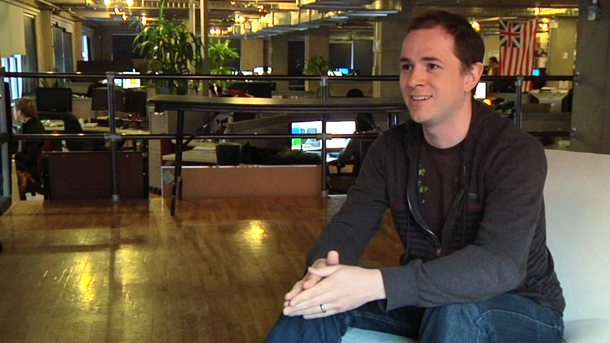Alex Hutchinson is the Creative Director on Far Cry 4 (Ubisoft Montreal). This is the first in a number of interviews I did with game developers from different studios. I gave them the same 7 questions concerning advice for students wishing to enter the industry, and their answers all vary to create a wealth of information.
(Photo Credit: Game Informer)
1. Briefly describe your current position at Ubisoft (for context).
I am a Creative Director at Ubisoft Montreal. I just finished Far Cry 4, and before that Assassin’s Creed III, Army of Two: The 40th Day and others. I define the initial vision for the game and then direct the various departments in the development of the game, then finish up by working through the editing process and finally PR and marketing tours.
2. Name one person (feel free to name more if you prefer) who had a strong positive influence on your career, and explain their most important action/advice/reason you consider them so influential.
I’ve been fortunate enough to work with some great producers who’ve had a big impact on my career over the years, but Reid Schneider is probably the biggest. He helped me get my first job at Maxis on leaving Australia many years ago, and has been a great sounding board and source of advice ever since. He has a knack for seeing potential in people and then giving them the space to grow, but he can provide very targeted and strong feedback when needed.
3. Is there a particular piece of career advice you got (or imagine you could have heard) early in your career you wish you’d have acted on?
A great piece of advice Reid gave me early on was: ‘Do you want to be right, or do you want to win’. As someone who has opinions and argues for a living, knowing when to let it go and when to attack are challenging concepts. Sometimes for the good of the project you have to ignore a minor issue you disagree with to focus on the big picture of getting the result that you want in the end.
4. What are the qualities you would suggest are important for a student to have, who wishes to enter your profession, specifically?
Drive; an encyclopedic knowledge of game history and game mechanics; the ability to articulate your ideas very clearly both verbally and in written form; the ability to work with others, coax the best out of them and know when to let them do their own thing instead of your idea; the ability to quickly admit when you’re wrong, and refuse to yield when you’re not.
5. What is a common mistake you notice students / recent graduates tend to make when looking for a job?
Not starting at the bottom and trying to move too fast. If you fail once catastrophically in this business, you will likely never get another chance. Waste your mistakes on small projects and take jobs at poor companies if you can’t get an entry level gig at a good one. Realize you’re not ‘too good’ for them; until you’ve helped make something worthwhile, there’s no evidence you can do anything at all.
6. What inspires you in your position? Are there any influences that you bring to your work?
Many great creators in all media inspire me: the imagination and drive of novelists like Philip K. Dick and Kurt Vonnegut; the talent and dedication of artists like J. H. Williams III and Frank Quitely and Jeremy Geddes; and then lots of people I work with on a day to day basis, just for their desire to try and make something amazing.
7. Are there any other advice you would offer to students entering the games industry?
When you don’t have the same level of experience or skill as other applicants, you need to make up for it by being twice as dedicated, doing twice the hours, and being twice as helpful to the people around you. Find the awesome people around you, make their day easier, and they will help you get where you need to go.
Other developer interviews:




Recent Comments